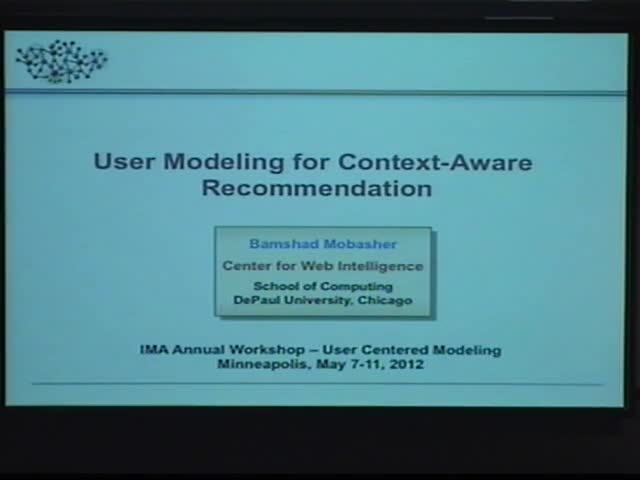User Modeling for Context-Aware Recommendation
Presenter
May 9, 2012
Keywords:
- Information systems
MSC:
- 97R50
Abstract
The role of recommender systems as a fundamental utility for electronic commerce and information access is well established with many commercially-available recommender systems providing benefits to both users and businesses. But, recommender systems tend to use simplistic user models that are additive in nature: new user preferences are simply added to the existing profiles. This additive approach ignores the notion of "situated action," that is, the fact that users interact with systems within a particular context and items relevant within one context may be irrelevant in another. Little agreement exists among researchers as to what constitutes context, but its importance seems undisputed. In psychology, a change in context during learning has been shown to have an impact on recall. Research in linguistics has shown that context plays the important role of a disambiguation function. More recently, the role of context has been explored in intelligent information systems. In particular, a variety of approaches and architectures have emerged for incorporating context or situational awareness in the recommendation process. In this talk, we provide a broad overview of the problem of contextual recommendation and some of the recent solutions to the problem of modeling context. We will specifically focus on several approaches for integrating context in user modeling for personalized recommendation, including an approach inspired by a model of human memory and emphasizes the modeling of context based on observations of user behavior; another that emphasizes the role of domain knowledge and semantics as an integral part of user context, and finally, an approach that exploits social annotations, such as collaborative tagging, as the basis for inferring content.
